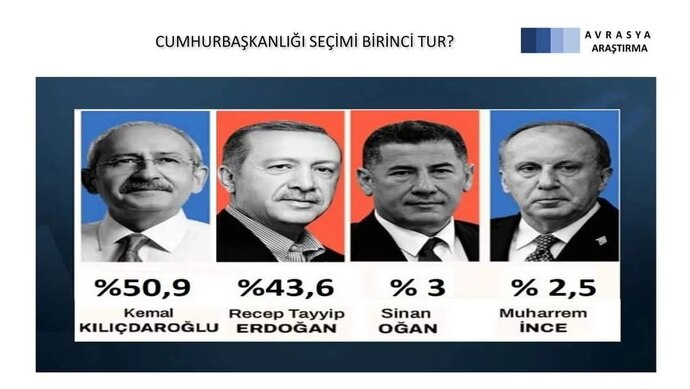On Sunday May 14th Turkey will hold its most important elections in decades. Here’s why it is so important for the future of the nation and the West.

Next Sunday Turkey will host what The Economist painted as “this year’s most important election”. For the first time in 20 years, current Turkish president Recep Tayyp Erdogan is not the clear favorite, and the elections might signal the end of his autocratic rule.
The leader of the largest opposition group, Kemal Kilicdaroglu, has been ahead in ratings for almost a year. The latest survey showed a 50.9% preference for Kilicdaroglu, which would close off an eventual second ballot.

- Latest survey on Turkey’s elections
Since its creation exactly a century ago, Turkey has been a parliamentary republic like today’s Italy and Germany. The people elect the Parliament which in turn puts a vote of confidence in the executive power.
But Erdogan implemented a historic change in 2018, switching Turkey to a presidential republic similar to the United States of America. Now, the people vote directly for the executive power, with a second round of elections between the two most voted candidates in case nobody got an absolute majority in the first round.
The new constitution, however, also pushed Turkey into a dangerous authoritarian path. It stripped the Parliament from most of its checks and balances, it allowed the President to exert his rule down to the tiniest local level.
It is widely believed that if Erdogan is successful on Sunday, Turkey could lose its democratic process for many years to come.
The geopolitics of Turkey’s election
It’s hard to understate the importance of Turkey on the geopolitical chessboard. Geographically, Turkey is the bridge between Europe and Asia, between the Black Sea and the Mediterranean.
Diplomatically, Turkey built a reputation for neutrality and mediation between major powers. Formally a part of NATO, Erdogan seems very close to Russia in many foreign dossiers.
In the Syrian and Libyan civil wars, for example, it actively opposed American forces while backing Russian interests.
In the current Russian invasion of Ukraine, Turkey mediated many international agreements between Russia, the West and Kyiv, including the crucial grain exports deal.
But the US is wary of Erdogan’s friendship with Putin, as well as its slide to authoritarianism. Furthermore, Washington also needs a new powerful ally in the Middle East now that Saudi Arabia turned to China and Russia for oil agreements.
Again, however, Erdogan’s conservative and religious regime does not serve the US’ purposes in the region. Washington needs a pro-west, pro-EU and pro-NATO Turkish president now more than ever.
And Kilicdaroglu’s victory might just be what is needed to sway Turkey under the American umbrella once again.




